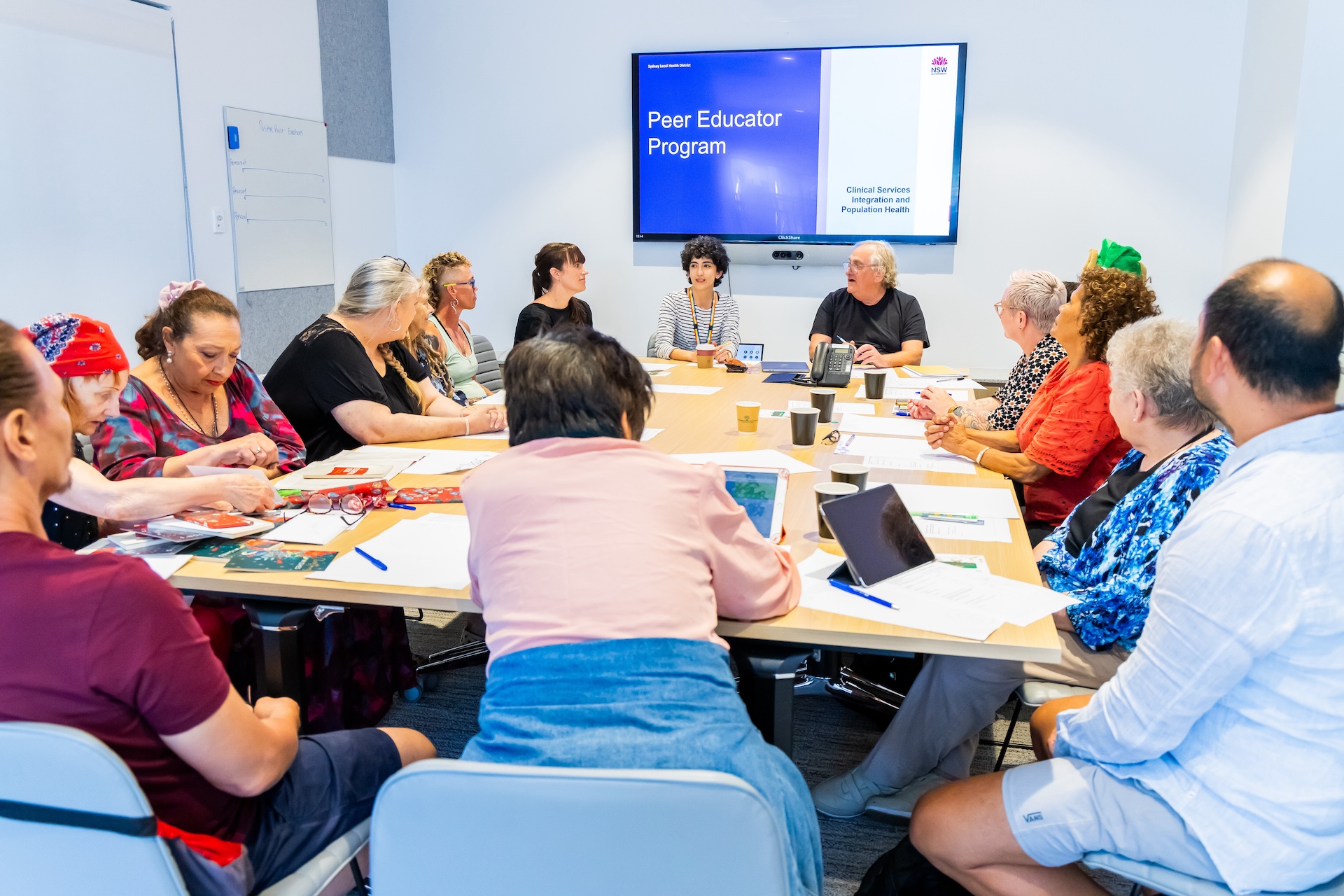
Health and Wellbeing Peer Education Program graduates its first group of educators
Community members emerge as grassroots health educators.

Sydney Local Health District’s Health and Wellbeing Peer Education Program recently celebrated the achievements of its peer educators as the initiative concluded in Waterloo after 2.5 years.
The program, led by the Priority Population and Places team in collaboration with Counterpoint Community Services, empowered social housing residents to deliver tailored health and wellbeing workshops to their communities. Beyond improving health literacy, the program fostered social connections and strengthened community bonds.
For Fernando Gorostiza, a peer educator, the program marked a turning point.
“It got me out of the house, out doing things I enjoyed,” said Fernando. “Talking to people, learning about diabetes, nutrition, and the mental health issues they’re facing, which are everywhere in the community.”
After experiencing homelessness and mental health challenges following the loss of his job, Fernando found renewed purpose in the program.
“For a while, I wasn’t doing anything at all, and I lost my confidence. The Peer Education Program brought me back to my passion, which is to promote the health and wellbeing of people. It makes the community safer - we look out for each other.”
Karyn Brown, another peer educator, highlighted the social benefits of the program.
“It becomes a social thing,” Karyn said. “We put on lunch, we have bingo and a trivia quiz. It’s not just about the workshop; it’s about making it fun and interactive. People learn while they’re enjoying themselves.”
Karyn added that these events also help residents connect with others:
“Sometimes just having lunch and bingo brings people out of their houses. They meet others, have a good time, and leave feeling a bit better.”
Both Fernando and Karyn spoke of the support they received in designing and running workshops.
“It’s a bit daunting, but it’s good,” Karyn said. “You get supported to overcome those barriers. It’s fun working out what we’re going to say and how to present it. We try to keep it interesting and upbeat, and we have experts to back us up if needed.”
The program trains peer educators to choose topics close to their hearts, from mental health to managing diabetes and understanding the Australian healthcare system. Small groups of peer educators collaborate with the program facilitators, experts from Sydney Local Health District and partner agencies to co-create workshop content. They then, combine insights gained from their training with their knowledge of the local setting and community. Over 29 workshops were delivered across Waterloo, Redfern, and neighbouring suburbs, engaging more than 650 participants. The grassroots model promotes trust, active participation, and meaningful discussions.
“When I hear people discussing ideas during workshops, it makes me feel like I’m making a difference,” Fernando said. “It gives you a sense of self-worth. The confidence comes back.”
As the program concludes in Waterloo, the Priority Population and Places team is planning to expand its reach in 2025 with a new group of peer educators.